- Home
- John Ellsworth
Unspeakable Prayers: WW II to Present Day (Thaddeus Murfee Series of Legal Thrillers)
Unspeakable Prayers: WW II to Present Day (Thaddeus Murfee Series of Legal Thrillers) Read online
Unspeakable Prayers
John Ellsworth
Contents
Copyright
Dedication
Book 1
Epigraph
Chapter 1
Chapter 2
Chapter 3
Chapter 4
Chapter 5
Chapter 6
Chapter 7
Chapter 8
Chapter 9
Book 2
Chapter 10
Chapter 11
Chapter 12
Chapter 13
Chapter 14
Chapter 15
Chapter 16
Chapter 17
Book 3
Chapter 18
Chapter 19
Chapter 20
Chapter 21
Chapter 22
Chapter 23
Chapter 24
Chapter 25
Chapter 26
Chapter 27
Chapter 28
Chapter 29
Chapter 30
Chapter 31
Chapter 32
Chapter 33
Book 4
Chapter 34
Chapter 35
Chapter 36
Chapter 37
Chapter 38
Chapter 39
Chapter 40
Chapter 41
Chapter 42
Also by John Ellsworth
Acknowledgments
About the Author
Reviews
Copyright © 2015 by John Ellsworth
All rights reserved.
No part of this book may be reproduced in any form or by any electronic or mechanical means, including information storage and retrieval systems, without written permission from the author, except for the use of brief quotations in a book review.
ASIN: B00QQTHLN8
First publication: January 2015
Publisher: Subjudica House Press
For Debra, again
Book 1
"The schools would fail through their silence, the Church through its forgiveness, and the home through the denial and silence of the parents. The new generation has to hear what the older generation refuses to tell it."
— Simon Wiesenthal
Chapter One
Treblinka, Poland 1942
In the winter the Jews were apparitions. Without face or voice they appeared before him and sat for haircutting before moving to the showers. They said nothing, asked for nothing, and were given only death.
He lied to them, told them he was a barber. Which kept him alive. He was nineteen.
The murderers wouldn't have known the difference about his lie, nor would they have cared. It was all the same: the nude women came into the small passageway, sat on the freezing bench, stared without sound, resigned. They were even obedient, hopeful that by pleasing the SS and Ukrainian guards they would be allowed to live. They didn't know they were already dead. They were always the last to learn of it.
The barber would apply scissors to the hair, five cuts and—done. The Nazis allowed only five cuts. It was a rule, a law at Treblinka in 1942. Six cuts would get you shot on the spot. It was a game played by the SS called Shoot the Barber. The SS were the Schutzstaffel—Adolf Hitler’s handpicked cadre to run the extermination camps for the killing of Jews.
What no one could know were the barber's ministrations, for, as he touched their hair with his scissors and hands, he silently prayed over each one, Sh'ma Yisrael Adonai Eloheinu Adonai echad—Hear, O Israel, the Eternal is our God, the Eternal is one. It was a prayer of atonement and he wasn't a rabbi. It was just he didn't know what else to do for them. He had nothing else to offer. As for the prayer, he didn't even believe it anymore. In a very short time he had seen way too much to still believe in a God who heard prayer. It was just he had nothing else to offer the women, so he prayed.
All the hair went into suitcases. Where the suitcases went, he had no idea.
His name was Lodzi Ashstein and he was a Jew. His mother was from Warsaw, his father from Berlin. His patrons were Jews and his haircuts were free. When he was done, the women would stand and pack shoulder to shoulder in the next room, the shower. When it was crushed full with horrified women, the Nazis hermetically sealed the door. The engine coughed to life and the gas hissed into the shower. Slowly they succumbed, leaning against each other until collapsing in a tangle of arms and legs.
The doors at either end of the gas chamber were fixed with portholes. Nazi guards waited there. Sometimes they laughed and pointed out a particularly violent death. Sometimes they just admired the nude bodies. Each guard was different in his preferences. Some even preferred not to watch at all. They smoked and chatted about the weather and the war. When the last cries were heard inside the vault they blew their whistles and the workers came running, burdened with the ladders.
Lodzi would help load the women onto ladders and bear them off to the ditches. There the corpses would be covered with sand until the blood no longer bubbled up to the surface, then the next stratum of Jews could be laid down in this geologic epoch called the Third Reich.
* * *
Lodzi's day began at five a.m. with the bugle. He had slept all night on the December ground in the freezing December air as he did every night. He awoke stiff and cold, hurting to urinate but knowing he would have to step outside the barracks, into the snow, to relieve himself. And it was even colder outside than inside the barracks where a hundred Jews like him slept huddled on the ground, resting for another day of Jew harvest. They didn't know what else to call it, they didn't know how to speak of it, it was them and they became one with it, Sh'ma Yisrael Adonai Eloheinu Adonai echad.
Lodzi rolled onto his back and felt the damp pierce his thin shirt where the permafrost had melted beneath him during the night. To his left was warmth, a man from his village named Kaleb Rajski and to his right was warmth, a man he had met in the camp named Avil Vernich. One slept on his back and snored outrageously, the other slept on his side, his back to Lodzi, pressed up against him as if to inhale the temperate zone right out of his body and claim it for his own. But it was all right, for the men shared everything and they shared nothing for they had nothing to share.
Lodzi fell in line for coffee and bread. It was yet dark out and a light snow was falling. Another train had pulled into the station at four a.m. and Lodzi knew the passengers would be frost-bitten on their feet and hands. He knew they would be terrified. And he knew they would be wet from their urine and feces, made gruel-like by the fear that claimed all bellies. Later, Lodzi and Kaleb Rajski and Avil Vernich would hose out the cars before the return to eastern Poland for yet another load. Avil had somehow got the three of them selected for that task. A job in the Nazi death camp was a step, however slight, in the direction of a life expectancy longer than ten minutes. A job meant you would be needed to repeat a task—repeatedly. That was the key: repeatedly.
Treblinka was an extermination camp. Auschwitz was a concentration camp. The purpose of a concentration camp was to extract free labor from the Jews. Treblinka wasn't for work. Treblinka was for the Final Solution. No one survived there. Of course Auschwitz would later become a death camp as well, but it didn't matter, the names, they were all the same to the dead Jews.
As Lodzi waited in line for his coffee and bread, an SS guard strode past and laid the whip across Lodzi's shoulders for no apparent reason other than he was a Jew. Jews, to the SS, were meant for torture, for the labors of the damned, and for death. Whip them
, kick them, gas them, shoot them—it was all natural treatment of the Jew. And Lodzi marveled at the treatment even as his shoulders throbbed in pain. It was inconceivable to the Jews the SS could hate them so. They didn't know them, didn't know their histories, knew nothing of their families, and had no idea how much good they might have done in the world. It just didn't matter. The SS were men who had been bred and born to hate everything about the Jew. Many of them had grown up as Hitler Youth, where they had been educated and trained to loathe all Jews. When Adolf Hitler announced the Final Solution, meaning the extermination of all Jews from the face of the earth, the SS had responded with thunderous applause. Because the Final Solution fit exactly with what all members of the SS had since kindergarten been taught should be the Jew's lot in life.
The SS of Treblinka were men who had been hand-selected by Himmler's subordinates to control the prison camps and extermination camps. At the time of Lodzi's incarceration, the SS was divided into three factions. First, there were the Waffen soldiers of the SS. They were used by the German High Command much like the Allies used Special Forces. The second faction was the private guard of Hitler. They performed the same functions as the American presidents' Secret Service. And then there was the third division. These were the soldiers handpicked to run the prison camps, to oversee the Ukrainians, to enforce labor on the Jews, and, ultimately, to exterminate them.
After 1934, SS officers commanded all concentration camps in Germany and in German-occupied territory. Units known as SS Death's-Head Units (SS-Totenkopfverbände) guarded and administered the camps. Although the Security Police (Gestapo and Kripo) had exclusive authority to incarcerate, release, and "officially" order the execution of prisoners, the daily life of prisoners lay in the brutal hands of the camp commandants and these SS Death's-Head Units, which were not part of the police forces.
In the breakfast line, the clusters of men jerked forward and Lodzi snapped out of his reverie.
Now the same SS officer returned from the kitchen window, having crowded into the head of the line, and this time as he passed Lodzi he laid the whip to his back and laughed aloud. Lodzi recoiled, and the pain brought tears to his eyes. Still, he wouldn't cry out. To cry out meant a bullet to the head. You were expected to suffer in silence and you were expected to continue to function regardless of the abuse heaped on you.
Always there were the whips. All Nazi guards had whips. Lodzi knew he would be herded into the showers with the others as soon as one of the never-ending whippings opened a wound on his face. The murderers hated facial wounds. It was the final insult. Then he would be fed to the gas.
The Ukrainians had whips too, the trusted ones. And who wouldn't be trusted, after all, if it kept one alive? Any job would suffice if it meant life. No job was turned down if it kept you breathing. It was the algebra of the extermination mathematics. If your sum was greater than zero, it mattered not what went on the opposite side of the equation. Cut the hair from women in order to stay alive? Show me to the scissors. Layer a hundred bodies in a trench shoulder to shoulder, packing the infants between the legs? Pass me the shovel, the ice pick, the hoe.
He accepted his cup of coffee and slice of black bread. There was no protein in the diet because they wouldn't be alive long enough for diet to matter. At one time a workhorse died and was left to rot, so six Jews dragged the corpse inside the barracks and boiled it, a shoulder at a time, then a rump at a time. Then they cooked the head and the tongue. The maggots filled with air and floated to the top of the boil, where they could easily be dredged away with the makeshift wooden paddle. Some of the latecomers ravenously engorged themselves on the boiled maggots after they found the horsemeat was gone. Enough inquiry into who or what they were eating, they cried. Food was food was food. After three weeks they had quit caring. One man even ate the top of his boot until noticed by a guard and whipped to the showers for it. After, the Nazis made a game of lifting pants to check for missing leathers. It put a stop to the Jews eating their own clothing. Clothing was precious and was always recycled, never ingested. Any man caught eating his clothes would be shot on the spot. In a rare moment of lucidity, Lodzi was incredulous at the rule. Who would have thought there would ever be such a rule in one's life? But after just one hour at Treblinka you would never in your life be surprised again. In one hour you would have seen it all. Afterward it was just more upon more. It flowed by, you clipped the hair, you carried the dead, and you inhaled the sad air.
There was monotony in the midst of war, even within the extermination camp. The train rumbled west. The Jews unloaded and scurried to the showers. The train rumbled east, the Jews scurried aboard and the train rumbled west. Thirty to forty thousand in one day. It was nothing.
Dark, snow-filled evergreens looked on from the perimeter. A forest closed and held the scene as if inside a snow globe. Always the snow, the hissing gas, the ladders, the sand. Trains running mad circles around the globe, stop-start-stop-start. Lodzi dreamed this dream and saw he hid the globe away on a shelf in his room. He swore he wouldn't look ever again. But then he would wake up. Frozen and bladder pounding, stiff, starving, snippets of hair clinging to his rough shirt. Hair and hair and hair. Ladders, sand, hair. Bugle break for lunch of soup. Hair and hair and hair. Ladders sand, hair. Bugle break for soup at six o'clock at night. Dark, snowing again, evergreen monsters waiting in the shadows.
But then he heard. A whisper, a suggestion, a phrase.
A way. There was a way.
A way out. These were words spoken to him by Kaleb Rajski, who had heard them from Avil Vernich, who had them from Barracks 2, and down the line it went.
And he didn't sleep, the night he heard. He imagined he already was outside the camp and—
The four a.m. train arrived. Though the platform lay one hundred meters north, he could hear the crying from inside the boxcars. Crying, Where are we? Sh'ma Yisrael Adonai Eloheinu Adonai echad—the voices sometimes doubled and tripled to pray.
A way out.
Better to try than to die.
It became a refrain as he snipped five times: Better to try than die. Snip snip snip snip snip. Better to try than die. Better. Snip. To. Snip. Try. Snip. Than. Snip. Die. Snip.
Next.
A way.
Away.
Who said it?
Ladders, run down the icy path.
Who said it?
Roll down into the ditch.
Who said it?
Sand from the wheelbarrows. Shovels, sand, shovels.
Who said it?
Whip, whipping, whipped. Cries, but no sound. Weeping without voice.
Move along, Juden!
Who said it?
* * *
Lodzi, standing at the boxcars as the side doors shrieked apart. Blinking, terrified Jews, one hundred fifty to a car, stepping down onto the platform. All eyes black holes of fear, of pain, of understanding that dared not understand.
At times such as these his mind would grow wings and go perch on the pine boughs, with the winter jays, and look askance at the forest around him. That was how he managed, the beak, wings, and round eyes. He simply flew his mind away. It was easier than trying to make it stay on the platform and watch hell erupt yet again.
He snapped back. Lodzi himself was screaming at them, "Undress! Clothes off now!" as he had been assigned to the undressing that morning. "Undress, Juden!" he cried at them and, in a fit of insanity, he actually believed he was one of the murderers, that he had switched sides, that he was safe. But he was quickly disaffected of the notion as he felt the lash bite across his shoulders, heard the Nazi screams just inches from his ears, "Run, dog, run!" and he realized he had been fused into the group, that he had been reborn a newcomer and he was expected to run for the gas chambers with the others. Had the Nazis lost their minds? Had they forgotten he was a barber? The lash again and the whip's impatience bloodied his shoulders, rending cloth and flesh as he fumbled clumsily along the shirt's buttons.
Blinking hard agains
t the reality that wouldn't be denied, he immediately tore off what remained of the shirt, kicked off his wool trousers, stepped on the heels of his shoes, kicked them atop the ten foot pile, and broke into a run with the others. He thought he heard his name called from behind in the running mob. My God, he thought, I am running for the gas!
The path along which he ran was covered with sand, used to hide the feces of the last load of Jews who ran the path, their bowels watery and releasing down their legs as the fear hit in mid-stride and they evacuated onto the sand while others, coming up behind, sidestepped and leapt to avoid the excrement. Yes, he knew what lay beneath the sand across which he now danced, for he had helped spread some of that very sand himself. Then he heard his name called from behind again. But he ignored the call, for his name was a common one. He refused to reply, though the tears whipping from his eyes demanded he turn his head to see her. He forced his eyes ahead and flapped his wings away into the forest while his legs and body went separately down the path.
Off to the side of the path was another huge stack of abandoned clothes, one story high and half the length of a boxcar. His eye was caught; an idea formed and returned him from the pine branches, and in one gather he leapt from the sand onto the pile and burrowed in until he was completely hidden. There he found a shirt, then pants that, reclined on his back, he could work up over his feet and along his legs and cinch at the waist. Shoes had been flung into the pile in final despair, with laces tied, and his blind hand retrieved a too-tight pair but they would do and he pulled them on without tying the laces.
Then he crawled back out of the mound and immediately set about sorting the clothes as he had seen other workers do.
Off toward the chamber he heard his name again.
He put the cry out of his mind and watched his hands and arms pull and tug: pants, shirts in two piles, shoes in a third. Nazis ran past, ignoring him. He was chosen to continue with his work. Safe for that moment, and his hands flew across the fabric abandoned in the final act of surrender of the fleeing Jews, undressing and flinging clothes. Each shirt, each dress extending his usefulness as one who would sort and ignore the damned: dancing naked in the whips, vulnerable, ashamed and weeping and pursued by all hell's demons into the gas chambers.

 Girl, Under Oath (Michael Gresham Series)
Girl, Under Oath (Michael Gresham Series) The Fifth Justice (Michael Gresham Legal Thrillers Book 10)
The Fifth Justice (Michael Gresham Legal Thrillers Book 10)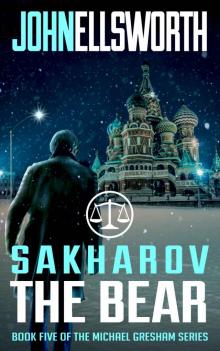 Michael Gresham (Book 5): Sakharov the Bear
Michael Gresham (Book 5): Sakharov the Bear Voices In The Walls: A Psychological Thriller (Michael Gresham Series)
Voices In The Walls: A Psychological Thriller (Michael Gresham Series)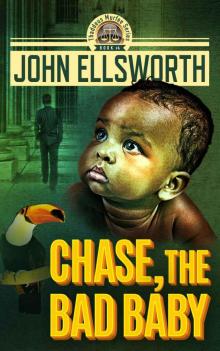 Chase, the Bad Baby: A Legal and Medical Thriller (Thaddeus Murfee Legal Thriller Series Book 4)
Chase, the Bad Baby: A Legal and Medical Thriller (Thaddeus Murfee Legal Thriller Series Book 4)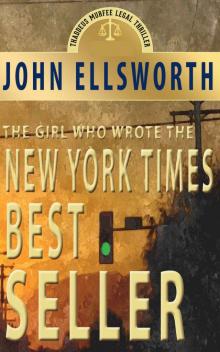 The Girl Who Wrote The New York Times Bestseller: A Novel (Thaddeus Murfee Legal Thrillers Book 8)
The Girl Who Wrote The New York Times Bestseller: A Novel (Thaddeus Murfee Legal Thrillers Book 8) The Defendants: Crime Fiction & Legal Thriller (Thaddeus Murfee Legal Thriller Series Book 1)
The Defendants: Crime Fiction & Legal Thriller (Thaddeus Murfee Legal Thriller Series Book 1) Hellfire (Sisters In Law Book 2)
Hellfire (Sisters In Law Book 2) A Young Lawyer's story
A Young Lawyer's story Annie's Verdict (Michael Gresham Legal Thrillers Book 6)
Annie's Verdict (Michael Gresham Legal Thrillers Book 6) Legal Thriller: Michael Gresham: Secrets Girls Keep: A Courtroom Drama (Michael Gresham Legal Thriller Series Book 2)
Legal Thriller: Michael Gresham: Secrets Girls Keep: A Courtroom Drama (Michael Gresham Legal Thriller Series Book 2)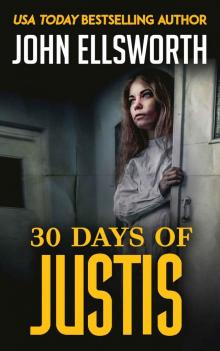 30 Days of Justis
30 Days of Justis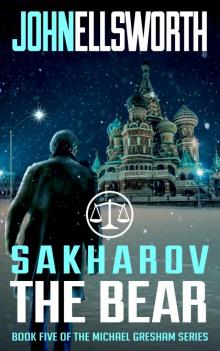 Sakharov the Bear (Michael Gresham Legal Thrillers Book 5)
Sakharov the Bear (Michael Gresham Legal Thrillers Book 5)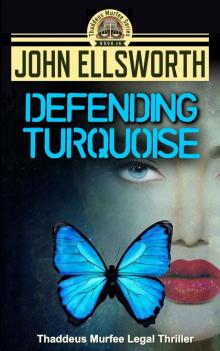 Defending Turquoise (Thaddeus Murfee Legal Thriller Series Book 5)
Defending Turquoise (Thaddeus Murfee Legal Thriller Series Book 5)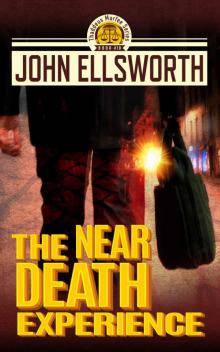 The Near Death Experience (Thaddeus Murfee Legal Thriller Series Book 10)
The Near Death Experience (Thaddeus Murfee Legal Thriller Series Book 10)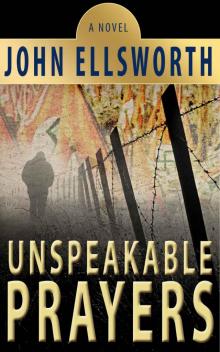 Unspeakable Prayers: WW II to Present Day (Thaddeus Murfee Series of Legal Thrillers)
Unspeakable Prayers: WW II to Present Day (Thaddeus Murfee Series of Legal Thrillers)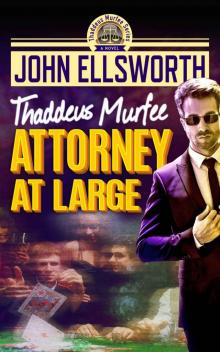 Attorney at Large (Thaddeus Murfee Legal Thriller Series Book 3)
Attorney at Large (Thaddeus Murfee Legal Thriller Series Book 3) The Law Partners (Michael Gresham Legal Thriller Series Book 3)
The Law Partners (Michael Gresham Legal Thriller Series Book 3) Annie's Verdict
Annie's Verdict The Mental Case (Thaddeus Murfee Legal Thriller Series Book 6)
The Mental Case (Thaddeus Murfee Legal Thriller Series Book 6)